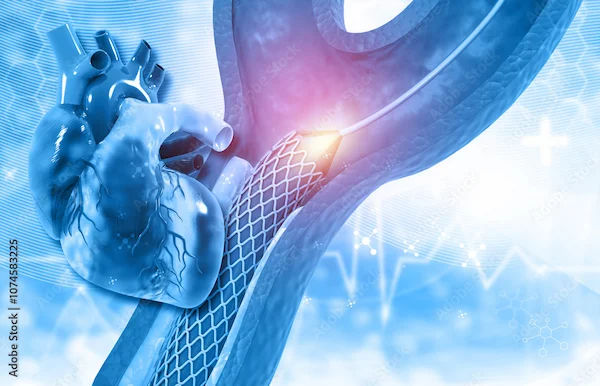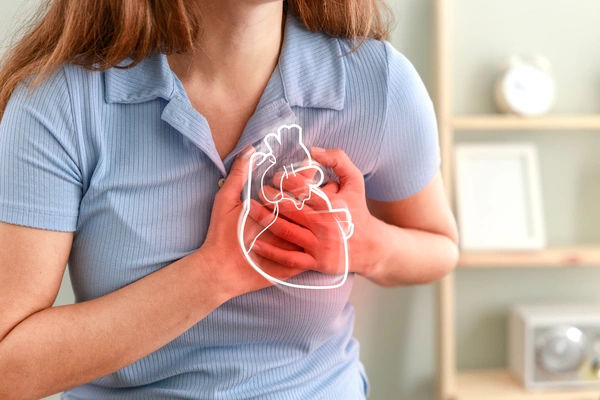- Male
- 40 Years
- 22/01/2025
I'm dealing with severe anxiety and depression symptoms for the past few years, and I've had a couple of panic attacks. Now I'm seeing some ECG changes, but my Troponin levels are within normal limits. Both my ECHO and Angiography came out normal. Does this mean my heart is okay? Is it safe for me to do intense exercise? Sometimes I feel a sharp pain in my chest area that only lasts for a few seconds and goes away quickly. Any idea why my ECG has changed? What can I do about feeling weak all the time? And it's weird, but my feet are always cold. Any thoughts on what's going on?
Answered by 1 Apollo Doctors
The ECG changes could be related to your anxiety and panic attacks, but it's important to monitor them closely. To address the sharp pain in your heart area, you can take a low dose of a beta-blocker like Metoprolol (25-50mg) as needed for chest pain relief. For your weakness, you can try taking a daily dose of a multivitamin like Centrum to ensure you're getting essential nutrients. Cold feet can be improved by wearing warm socks and keeping your feet elevated when possible. Regular exercise is beneficial for anxiety and depression, but start with low to moderate intensity workouts and gradually increase the intensity based on your tolerance.
Dr. Dr Khaleel Suggests...
Consult a Cardiologist
Answered 04/07/2025
0
0

More Cardiology Health Queries
View allI've been having this small tingly sensation in my upper chest since November 2016. It kinda feels like there's a blockage or something. Should I be worried about this, and what might it be?
The symptoms you are describing could be related to acid reflux or a nerve issue. To help with the tingling sensation, you can try taking Omeprazole (brand name Prilosec) 20mg once daily before breakfast to reduce stomach acid. Additionally, you can take Gabapentin (brand name Neurontin) 300mg three times a day to help with nerve-related symptoms. However, it is important to consult with a doctor for a proper diagnosis and treatment plan.
Answered by 1 Apollo Doctors
I've just got the COVAXIN and I'm a 21-year-old male at 80kg and 165cm. Since getting the shot, I've been feeling some discomfort in my chest area. I've been checking my heart rate, and it's averaging around 100 bpm, but I've also seen it spike to 110, 120, and even 130. I'm starting to get a bit worried about what this means. What should I do?
Visit Physician for evaluation and appropriate management
Answered by 1 Apollo Doctors
I've been experiencing some chest pain on the left side where my heart is, and sometimes it even happens on the right side. It doesn't stop there though; I've noticed random pains around my body, especially in my left arm and a bit in my left shoulder. I went to the doctor, and she told me my hearts fine and suggested it might be Acid Reflux. But I'm still worried because I've read that pain in the left arm and shoulder can signal a heart attack. Should I be concerned or look out for anything else?
Advised cardiac markers and echo , repeat ecg after 2 weeks..Also take rabemac DSR orally ,onece a day before food for 2 weeks and syrup sucralfate 10 ml thrice daily for 2 weeks for GERD..
Answered by 1 Apollo Doctors
Disclaimer: Answers on Apollo 247 are not intended to replace your doctor advice. Always seek help of a professional doctor in case of an medical emergency or ailment.





